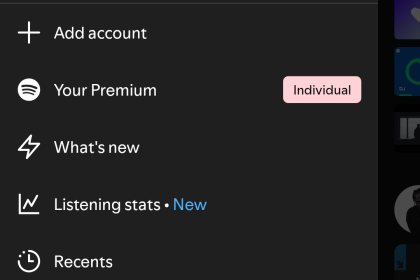I recently had what I would call an uncanny twitter conversation with a supposed “On-Air personality” at one of Ghana’s biggest radio stations. A conversation that invariably moved from “The importance of music blogs” to the state of music streaming in Ghana. This same chap was of an adamant opinion that, streaming services in Ghana were on the rise and there were fewer downloads and more streaming. See why I said Uncanny? Is he living in the same Ghana as we do? I doubt that.
Music streaming in modern cities has become a very integral part in the lives of music lovers. So much so that Global trends indicate that by 2020 music streaming services will dominate music distribution. The question here is “Where does Ghana stand in this evolving market?”

Despite the huge influence and repertoire of Afrobeats and the Ghanaian highlife sound across the globe, most countries on the west side of the African continent have not been significant markets for the international music industry. Today this is different, as digital technologies enable the recording industry to effectively reach the mass numbers of consumers across Africa for the first time. And then comes streaming…
Africa’s rapidly growing economies, the internet and smartphone penetration (though small in comparison to other markets), has brought about a change in the way music is generally distributed. Such growth projections have led music executives such as Sean Watson, who is the managing director of Sony Music Africa, to recognise and comment that the “forecasts for smartphone growth in Africa over the next few years are staggering. International services are opening for business, domestic platforms are growing stronger and new services are being developed”.
But can this thrive in Ghana?
This question arises from concerns such as rampant piracy in the form of fake CDs, playlist CD’s, countless websites that promote illegal downloads, sheer ignorance and the lack of proper legal backing of intellectual property. You walk the streets of Accra, you walk into a barbershop, you’re in a tro-tro and the music being played is either pirated or downloaded illegally. This is culture. This is what we’re used to. This is what is accessible and convenient for them. How then can a streaming service thrive?
The first challenge would be education. Doubts are raised about whether all of these artists themselves are aware that their music can be available for streaming, or if they have even ever heard of Spotify or Deezer? Do some artiste in Ghana even know what music streaming is all about? Do they know that the world is aligning towards streaming and most of their fans would rather stream than actually download the music on their devices? If the artiste’s are ignorant to this, then music streaming is dead on arrival.

The next concern would be the availability, speed, and cost of internet in Ghana. Streaming music relies heavily on affordable and reliable Internet connection. Ghana’s penetration is at a mediocre 17% – this would heavily draw back the progress of streaming in Ghana. Deezer partnering with Tigo to launch a special music platform was a key step in the progress of music streaming, here in Ghana. As to how successful that partnership has been, is unclear.
Apple music also launched in Ghana sometime last year at approx. $5 (20Ghs) a month, how many Ghanaians are really able to afford this? This is how much some spend on data monthly – scaling this into a monthly music subscription would be difficult to crack. They’d rather spend that money on data and then download music with that data plan.
Then there is culture. It’s hard to change Culture – it really is. We have a download culture and its penetrated into the deepest parts of society. Furthermore, given that most of our musicians give most of their music away for free downloads, there is little incentive to explore streaming anyway. The current industry model will probably need to change. Right now, the model for success is giving music away for free, hoping it becomes a hit that leads to popularity and then endorsements revenue and, ultimately, live performances.
So perhaps the internet becomes affordable and the culture changes, what then?
The bigwigs like Apple Music and Deezer arrived too early. The Ghanaian market wasn’t ready. But, in due time, the African market will definitely become as competitive as the foreign market and in turn, Ghana would need to catch up to that market.

When that happens, the industry would need to support its domestic music streaming companies. I’m a big fan of what Octo Sounds and Aftown are doing for the Ghanaian market. Accepting payments in GHS and also allowing for mobile money payment options. Baby steps, but viable.
Streaming kills piracy, and if the numbers are large enough (hint, hint, artistes and label execs), it will put money directly in their pockets. As Lefsetz says, “tech is all about scale and people who put brakes on the future end up screwing themselves.”
In conclusion, everyone knows that digital is here and analog is gone. For music streaming to thrive in Ghana, it would have to be approached differently.










